Historical Context of Animal Farm
Written in 1944 and published in 1945, Animal Farm reflects Orwell’s concerns about Stalinism, drawing parallels between the Russian Revolution and the rise of totalitarian regimes in post-WWII Europe, critiquing․
1․1․ When and Where Was Animal Farm Written?
George Orwell wrote Animal Farm between 1944 and 1945, primarily while living in England․ The novella was conceived during a time of political upheaval, as World War II drew to a close․ Orwell, deeply critical of Stalinism and totalitarianism, drew inspiration from the events of the Russian Revolution and its aftermath․ He penned the manuscript in a small village in Hertfordshire, reflecting his growing disillusionment with authoritarian regimes․ Initially titled Animal Farm: A Fairy Story, the work was published in England on August 17, 1945, and later in the United States in 1946; The rural setting of the story mirrors Orwell’s own surroundings, while its themes of power and corruption were shaped by his observations of global politics․
1․2․ Literary Period and Genre
Animal Farm is a product of the Modernist literary period, written in the mid-20th century․ It falls under the genre of political satire and allegory, blending fable with sharp social commentary․ Orwell’s concise prose and third-person narrative create a universal appeal, allowing readers to draw parallels between the story and real-world events․ The novella critiques totalitarianism through its allegorical depiction of the Russian Revolution, making it a seminal work in dystopian literature․ Its genre reflects Orwell’s intent to educate and provoke thought about the dangers of authoritarianism․ The simplicity of the fable contrasts with the complexity of its themes, ensuring its relevance across generations․ This unique blend of satire and allegory solidifies Animal Farm as a landmark of 20th-century literature․

1․3․ Background of George Orwell
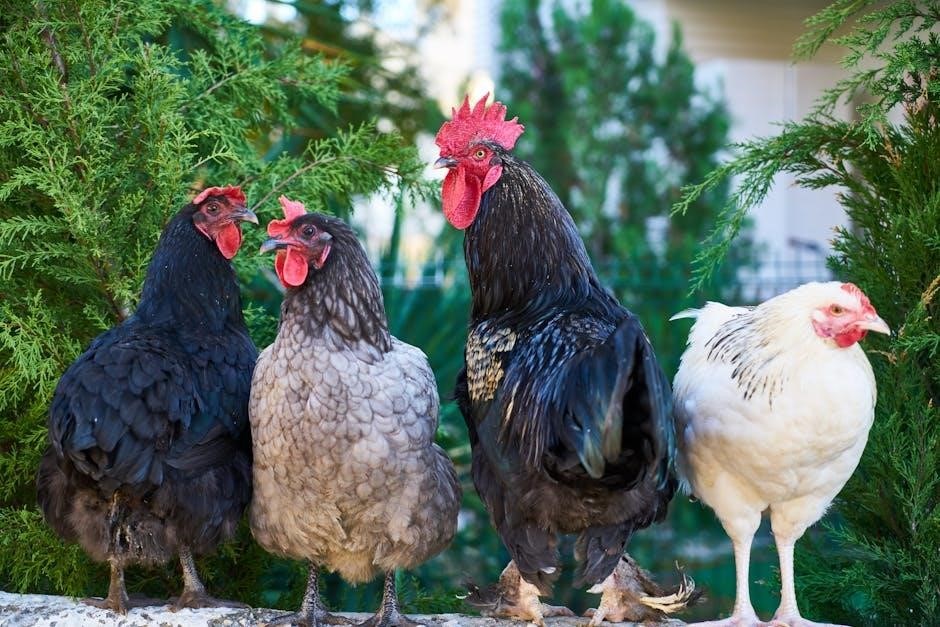
George Orwell, born Eric Arthur Blair in 1903 in Motihari, India, was a British novelist, essayist, and journalist․ His early life in colonial India and education in England shaped his critical views on imperialism and societal inequality․ Orwell’s experiences as a police officer in Burma and his later involvement in the Spanish Civil War deeply influenced his writing, particularly his anti-totalitarian stance․ Known for his clarity and moral integrity, Orwell is celebrated for works like Animal Farm and 1984, which critique authoritarianism and propaganda․ His literature often reflected his commitment to democratic socialism and the defense of individual freedom․ Orwell’s unique voice and prophetic insights have made him one of the most influential writers of the 20th century, with his works remaining timeless in their relevance to political and social issues․ He passed away in 1950, leaving a legacy of intellectual honesty and literary excellence․
Major Themes in Animal Farm
Animal Farm explores themes like the corruption of power, propaganda, and the cyclical nature of history, highlighting how revolutions can lead to new forms of oppression․
2․1․ The Corruption of Power
The corruption of power is a central theme in Animal Farm, as seen through Napoleon’s transformation from a revolutionary leader to a tyrannical ruler․ Initially, the pigs, led by Napoleon and Snowball, champion the cause of equality and justice, but as time progresses, Napoleon consolidates power and adopts authoritarian practices․ The pigs exploit their intellectual superiority and manipulate the other animals, altering the Seven Commandments to justify their actions․ This corruption is evident in their gradual adoption of human behaviors, such as sleeping in beds and drinking alcohol, which they had initially condemned․ The novel highlights how power, when unchecked, leads to exploitation and oppression, mirroring the real-world rise of totalitarian regimes․ Through Napoleon’s descent into tyranny, Orwell critiques the dangers of unchecked authority and the betrayal of revolutionary ideals․
2․2․ Propaganda and Manipulation
Propaganda and manipulation are pivotal tools of control in Animal Farm, employed by the pigs to maintain their authority․ Squealer, the pigs’ propagandist, distorts reality through rhetoric, altering the Seven Commandments to justify their actions, such as “No animal shall drink alcohol” becoming “No animal shall drink alcohol to excess․” This manipulation ensures the pigs’ power remains unchallenged․ The pigs also use fear, false narratives, and historical revisionism to keep the other animals submissive․ For instance, they blame Snowball for failures to divert attention from their own shortcomings․ The novel illustrates how propaganda can erode truth and critical thinking, allowing rulers to exploit their subjects․ Orwell’s depiction of these tactics serves as a warning about the dangers of manipulative leadership and the importance of questioning authority․

2․3․ The Cyclical Nature of History
The cyclical nature of history is a central theme in Animal Farm, as Orwell depicts how revolutions, despite their idealistic beginnings, often lead to the same oppressive systems they sought to overthrow․ The animals’ rebellion against Mr; Jones initially promises equality and freedom, but over time, the pigs’ corruption and consolidation of power mirror the very tyranny they rebelled against․ This cycle is evident in the pigs’ gradual adoption of human traits, such as walking on two legs and carrying whips, which erases the distinction between oppressor and oppressed․ The novella concludes with the pigs and humans indistinguishably playing cards, symbolizing the inevitability of history repeating itself; Orwell warns that without vigilance, societies risk falling into the same patterns of oppression, highlighting the futility of revolutions that fail to address the root causes of power imbalances․
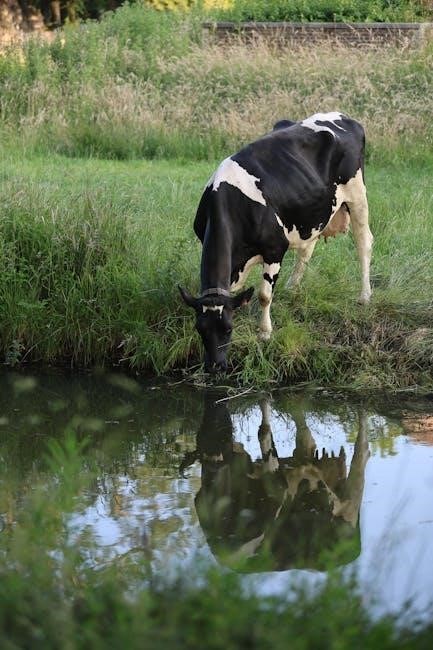
Literary Devices in Animal Farm
Orwell employs allegory, symbolism, and irony to critique totalitarianism, illustrating how power corrupts through the pigs’ actions, while satire underscores the futility of revolutions without accountability․
3․1․ Allegory and Symbolism
Animal Farm is a masterful allegory, with Orwell using animals to represent historical figures and political ideologies․ The pigs symbolize Soviet leaders, while other animals embody different social classes․ The barn serves as a sacred space, housing the Seven Commandments, which later get altered, reflecting the corruption of ideals․ The windmill symbolizes the failed promises of progress under totalitarian regimes․ Orwell’s use of symbolism allows readers to draw parallels between the novella and real-world events, such as the Russian Revolution and Stalinism․ The animals’ struggles mirror human societal dynamics, making the story timeless․ Through allegory, Orwell critiques power structures, highlighting how symbols of unity and equality can be twisted to justify oppression․ This layering of meaning ensures the novella remains a powerful commentary on human nature and politics․
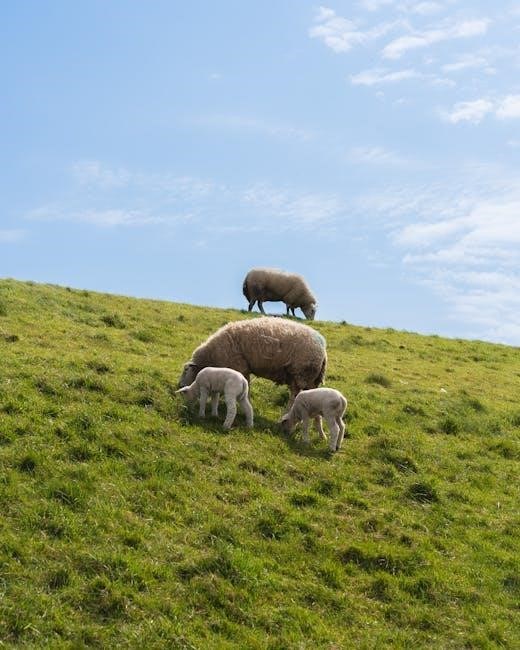
3;2․ Irony and Satire
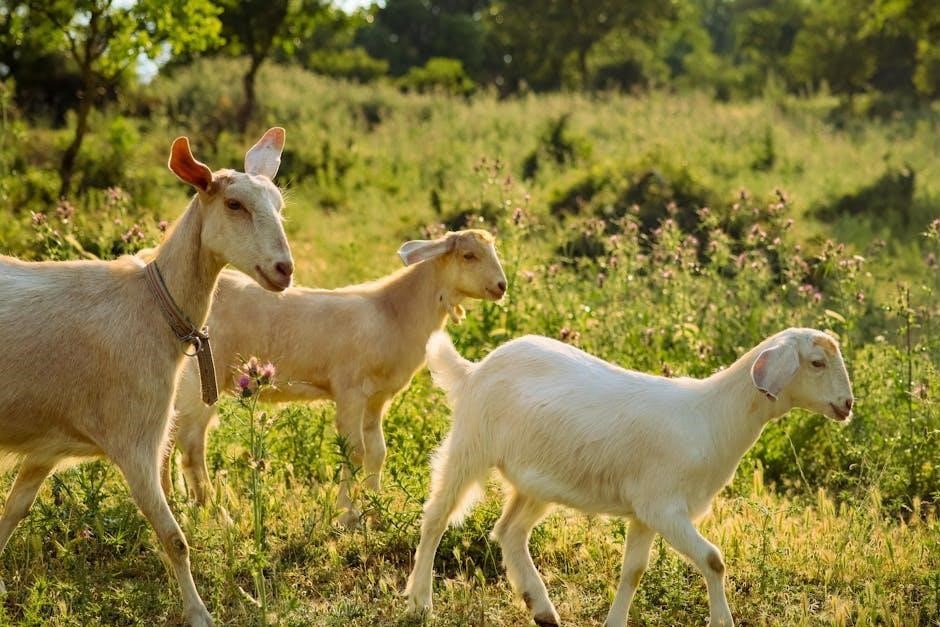
Orwell employs irony and satire to critique totalitarianism and the corruption of power in Animal Farm․ The novella is a satirical allegory of the Russian Revolution, with the pigs representing Soviet leaders who betray the ideals of equality․ Irony is evident when the pigs justify their oppressive actions with slogans like “All Animals Are Equal,” which they later qualify with “But Some Animals Are More Equal Than Others․” This twist underscores the hypocrisy of those in power․ Orwell’s satire also targets the gullibility of the working class, as the other animals blindly accept the pigs’ manipulation․ The novella’s irony lies in its portrayal of a revolution that devolves into the same tyranny it sought to overthrow․ Through satire, Orwell exposes the dangers of unchecked power and the erosion of ideological purity, delivering a timeless warning about political corruption and manipulation․

Critical Analysis of Animal Farm
Orwell’s novella critically examines totalitarianism, highlighting how power corrupts and ideologies are distorted․ It serves as a scathing critique of oppression, manipulation, and the erosion of revolutionary ideals․
4․1․ Betrayal of the Working Class
The betrayal of the working class is a central theme in Animal Farm, as the pigs exploit their fellow animals for power and privilege․ Initially, the animals unite to overthrow Mr․ Jones, but the pigs gradually manipulate the revolution for their own gain․
Through propaganda and fear, the pigs maintain control, eroding the original ideals of equality and justice․ The working-class animals, like Boxer, toil tirelessly while the pigs reap the benefits, mirroring real-world class exploitation and the failure of revolutionary movements to protect the oppressed․

Orwell critiques how those in power often betray the trust of the working class, highlighting the dangers of unchecked authority and the erosion of solidarity․ This theme remains relevant, urging readers to question systems that exploit the vulnerable for the benefit of the elite․

4․2․ Dangers of Totalitarianism
Animal Farm vividly illustrates the dangers of totalitarianism through Napoleon’s rise to power․ The pigs, initially leaders of the rebellion, gradually adopt authoritarian tactics, mirroring Stalin’s regime․ Napoleon uses propaganda, fear, and manipulation to maintain control, eroding the farm’s democratic ideals․
The pigs rewrite the Seven Commandments to justify their actions, symbolizing how totalitarian regimes distort principles to maintain power․ The novel highlights the loss of individual freedoms and the suppression of dissent, as seen in the expulsion of Snowball and the silencing of critics․
Orwell’s critique of totalitarianism warns against the consolidation of power and the erosion of truth․ The farm’s descent into a dystopian state worse than under Mr․ Jones underscores the destructive nature of unchecked authority, serving as a timeless cautionary tale about the dangers of authoritarian rule․
Modern Relevance of Animal Farm
Animal Farm remains relevant today, offering insights into contemporary issues like political manipulation, corruption, and the dangers of unchecked power․ Its themes resonate in modern debates on authoritarianism and propaganda․
5․1․ Contemporary Political and Social Issues
Animal Farm’s themes resonate strongly with contemporary political and social issues, such as the rise of authoritarianism, propaganda, and the manipulation of truth․ The novel’s depiction of power consolidation by the pigs mirrors modern concerns about leadership and governance․ Issues like income inequality, exploitation, and the erosion of democratic values are reflected in the animals’ struggles․ The pigs’ use of propaganda to control the narrative parallels today’s misinformation and disinformation crises․ Additionally, the novel’s exploration of groupthink and the suppression of dissent aligns with current debates on free speech and censorship․ The cyclical nature of history, as shown in the novella, warns against complacency and the recurrence of oppressive systems․ These parallels make Animal Farm a timeless critique of human society, offering lessons on vigilance and the importance of critical thinking in addressing modern challenges․
5․2․ Lessons for Today’s Society
Animal Farm offers timeless lessons for modern society, emphasizing the dangers of unchecked power, manipulation, and the erosion of equality․ The novella highlights how power can corrupt even well-intentioned leaders, leading to exploitation and oppression․ It underscores the importance of critical thinking and vigilance in preventing the abuse of authority․ Orwell’s allegory warns against the dangers of propaganda and misinformation, urging individuals to question narratives presented by those in power․ Additionally, the novel illustrates the cyclical nature of history, reminding us that without awareness and collective action, societies may repeat past mistakes․ These lessons remain relevant today, encouraging readers to advocate for transparency, accountability, and equality in both political and social systems․ By reflecting on these themes, modern society can better navigate challenges like authoritarianism, disinformation, and social inequality․
Animal Farm remains a profound allegory that critiques totalitarianism and explores the dangers of power corruption․ Orwell’s novella, written in 1945, reflects the historical context of the Russian Revolution and Stalin’s rise, offering timeless lessons․ Its themes of propaganda, manipulation, and the cyclical nature of history resonate deeply, warning against the erosion of equality and freedom․ The story serves as a cautionary tale about the betrayal of revolutionary ideals and the dangers of unchecked authority․ Orwell’s use of animals as symbols allows readers to grasp complex political and social issues universally․ The novella’s relevance endures, urging modern society to remain vigilant against authoritarianism and to champion transparency, accountability, and collective action․ Animal Farm is not just a critique of the past but a mirror to contemporary issues, ensuring its continued relevance in understanding power dynamics and societal structures․
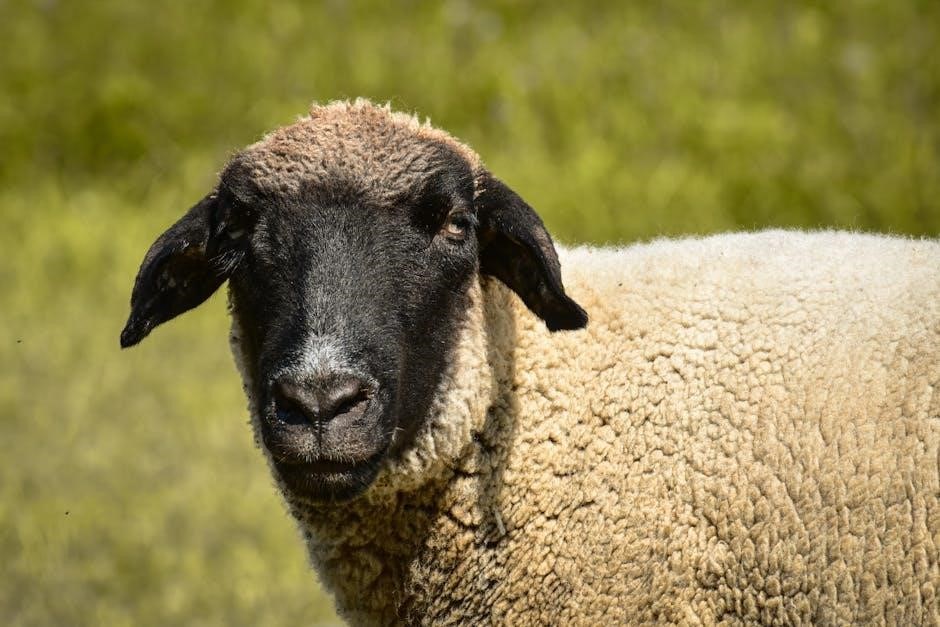
Leave a Reply
You must be logged in to post a comment.